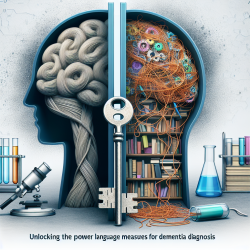Introduction
The mental health landscape in the Northwest Territories (NWT) is unique, characterized by vast geographic expanses, cultural diversity, and historical challenges. The scoping review titled "Mental health services in the Northwest Territories: a scoping review" provides valuable insights into the mental health services available in the NWT and highlights the importance of culturally relevant care for Indigenous communities. This blog explores how practitioners can leverage these findings to improve their skills and enhance mental health services for children in the NWT.
The First Nations Mental Wellness Continuum (FNMWC) Model
The FNMWC Model is a guiding framework that emphasizes a comprehensive approach to mental wellness, integrating cultural, traditional, and mainstream services. It categorizes essential services into a continuum that includes health promotion, prevention, early intervention, crisis response, and support and aftercare. For practitioners, understanding and applying this model can be transformative in delivering culturally sensitive and effective mental health services to children in the NWT.
Key Findings from the Scoping Review
The review identified 68 mental health services in the NWT, categorized using the FNMWC Model. A significant finding was the lack of crisis response and detox services, highlighting a critical gap in the continuum of care. However, the review also showcased the resilience and cultural strengths of Indigenous communities, which can be leveraged to enhance service delivery.
Implementing the FNMWC Model in Practice
Practitioners can improve their skills by integrating the FNMWC Model into their practice. Here are some actionable steps:
- Cultural Competence: Enhance understanding of Indigenous cultures, languages, and traditions to deliver culturally safe services.
- Collaborative Partnerships: Work with Indigenous communities, elders, and local organizations to co-create mental health programs that are culturally relevant and community-driven.
- Comprehensive Care: Address the full spectrum of mental health needs by ensuring access to prevention, intervention, and aftercare services.
- Innovative Solutions: Utilize technology, such as online therapy platforms like TinyEYE, to overcome geographical barriers and provide accessible care.
Encouraging Further Research
While the scoping review provides a foundational understanding, further research is needed to evaluate the effectiveness of existing services and explore innovative approaches to mental health care in the NWT. Practitioners are encouraged to engage in research initiatives and contribute to the development of evidence-based practices that prioritize Indigenous wellness.
Conclusion
By applying the FNMWC Model and embracing culturally relevant practices, practitioners can significantly enhance mental health services for children in the NWT. This approach not only addresses service gaps but also empowers communities to achieve mental wellness in a manner that respects and integrates their cultural heritage.
To read the original research paper, please follow this link: Mental health services in the Northwest Territories: a scoping review.










